

All they’ll see is the glow when you’re done.
Exit Strategy is an intensive recovery program that includes strategic planning to ensure long-term commitment, adherence, and sustainability to your goals.
Integrating elements of dialectical behavioral therapy, somatic therapy and relational analysis for recovery from alcohol, substance use, sex, love, and relationship addiction grounded in evidence, experience, and insight.
Customized relapse prevention and real-world aftercare are designed to amplify lasting, impactful change.
Schedule a private consultation.
You begin where the habit ends.
An IOP program for radical transformation, custom designed by a trauma-informed addiction therapist in San Francisco with extensive personal and clinical experience in recovery.
Addiction therapy for those ready to disrupt the cycle.
A step-by-step outpatient addiction treatment program through the foundational work of recovery, this confidential 12-week intensive guides you through every stage of change — from contemplation to implementation — while building insight, motivation, and meaningful coping skills.
Charting safe passage through the inner terrain of early recovery. Developed by a licensed therapist with over a dozen years sober.
You don’t have to abandon your life to make space for change.
Schedule a private consultation.
“Dual diagnosis” refers to the co-occurring disorders and underlying emotional or psychological conditions that increase a person’s vulnerability to addiction, complicate treatment, and potentially lengthen recovery. These are often the very symptoms that led you to drink or use in the first place:
Self-medicating works until it doesn’t.
What was once an effective coping strategy has become the problem. The drink that once calmed your nerves now fuels your anxiety. The substance that once softened your grief now deepens your despair. The relationship that made everything alright is now a threat to your sanity.
Healing becomes more complex once the substance of addiction is removed. For many, these deeper issues surface fully for the first time in years. At that point, the person is no longer just grieving the loss of their closest friend or coping tool—they’re also facing the underlying pain it once helped to mask.
This makes recovering from addiction even more difficult. Once the substance is gone, the re-emergence of psychological symptoms — anxiety and depression, trauma, rage, shame — can be overwhelming. The substance or behavior was never just the problem; it was a response to something deeper.
If you are using substances to cope with anxiety, depression or trauma, making a commitment to intensive outpatient addiction therapy is not only appropriate, but often more necessary and effective than any medication or 12-step program alone. It provides a space to face what the substance was helping to manage — with personal support, structure, and relational repair.
It is, as they say, “a cunning and baffling disease.” But what truly complicates recovery isn’t just the addiction itself — it’s what rises to the surface once the substance or behavior is gone.
for the Sober Curious, Ambivalent or Completely Resistant…and everyone else wondering, “Am I really that bad?”
The fact that your system can’t tolerate a toxin isn’t a moral failing—it’s actually your body’s way of protecting you. What isn’t normal, or shouldn’t be, is choosing to ingest something that will eventually make your mind and body fail. If drinking is damaging your health, wellbeing, or relationships, you’re not alone. There’s nothing wrong with you for needing a new way forward.
It’s completely understandable to worry about being likeable—most of us learned to socialize in a culture where drinking is the norm, so there’s often some catching up to do. But it’s important to remember that your sense of what was “fun” (and how you showed up) was often distorted by alcohol.
Sometimes, what you discover isn’t that you’re no longer fun, but that your concept of “fun” has changed.
As you move forward, some drinking buddies may fall away, and you may find yourself building new, more authentic connections. That’s not a loss; it’s clarity.
Real fun is connection, laughter you remember, and joy that isn’t followed by regret. You get to rediscover what lights you up—on your own terms.
Finding new ways to release stress and let go is a crucial part of recovery. There are so many healthy tools—like mindfulness, dance, yoga, surfing, running, climbing, time in nature, or creative expression—that can bring real relaxation. This is also your chance to try all the things you couldn’t do before because you were drinking or recovering from drinking.
Over time, you may find that you’re able to relax more deeply and authentically than you ever could before.
I’ll be honest with you: the early days of recovery can be boring, painful, and frightening—especially depending on the severity of your addiction and how long you’ve been drinking. What’s worse is having to go through those early days more than once, or living in the purgatory of intoxication and withdrawal. Do this once, and you never have to experience a hangover again.
In sobriety, you’ll learn new ways to cope with discomfort—building resilience and discovering that you’re capable of self-soothing without alcohol. You may even be surprised to find that there are many other ways to feel good. Therapy can help you develop tools to manage whatever comes up.
Many artists worry that sobriety will dull their inspiration. This is your opportunity to realize that the substance is not the muse—it was you all along. As time goes on, you may even find that your work becomes more nuanced, layered, and precise, as you begin to see more clearly and your tools for accessing new realities expand. Therapy for artists in recovery can deepen your connection to yourself and your work—making your art more authentic and powerful than you could have previously imagined.
This is one of the most challenging—and rewarding—parts of getting sober. If you’re asking this question, you’ve already begun the important work of personal transformation. Loosening your identification with your substance of choice, whether alcohol, weed, or pills, is a powerful first step toward long-term recovery. It’s an opportunity to reinvent yourself.
Recovery invites you to get curious about who you are beneath old habits and roles, and to become intentional about who you want to be moving forward. Often, this is a moment of radical transformation. With support, you can explore and embrace your true self—often discovering more depth, creativity, and meaning than you ever imagined.
Yes, absolutely—but don’t rush it. Dating sober can feel daunting at first. You may notice you’re more self-aware (and maybe more self-conscious) without the blunting effect of alcohol. That’s completely normal. Many people find it helpful to take the first year of sobriety to focus on their relationship with themselves and take a break from dating. Relationship stress is a common trigger for relapse, so give yourself time.
Pay attention to the signals your body gives you about safety, and start dating when you’re truly ready—not out of obligation or pressure.
Thankfully, the culture is shifting, and there are now plenty of options for mocktails and non-alcoholic drinks. Not only is it possible to date and build relationships without alcohol, but your connections will likely be more meaningful and aligned with your values. Sobriety can help you show up more authentically and make choices that genuinely serve you.
If you’re thinking, “Sober sex—WTF?” you’re not alone. The idea of sober sex can be terrifying, especially if drinking or using was always a part of intimacy. It’s normal to feel vulnerable or awkward. You may even silently declare yourself a born-again virgin. Embrace the chance to have a second first time. Many people find that sober sex is more connected, present, and exciting. When you’re sober, every sensation is heightened. Don’t be surprised if the best sex of your life is still to come.
For those who have experienced sexual harm during their time drinking or using, trauma-informed sex therapy is an excellent resource for helping to gently reconnect with your body, rediscover your own agency, and open up to new possibilities for pleasure.
Worrying about what to say—or what people will think—is completely normal. Here are a few simple things you can say in social settings: “I’m not drinking.” “I’m taking a break.” “It’s not working for me.” Or you can have fun with it, “Oh, no thanks. It’s better this way for everyone.”
You get to share as much or as little as you want. Some people are open about their journey; others keep it private. Recovery is all about learning to set firm, graceful boundaries, and this is part of that lesson. Over time, your confidence will grow and the urge to explain will usually fade away.
One last thing: the only people noticing what you’re drinking are other alcoholics.
Alcoholics Anonymous is one path to recovery, but it’s not the only one. For those with trauma histories, group settings can feel unsafe or potentially triggering. Many people find that the personal care they receive in individual therapy is more private and contained. In a moment that often involves shedding old personas and can feel incredibly raw, what matters most is finding what works best for you.
If you’re an extrovert who thrives in social settings, AA can be an excellent resource for connecting with a new community where shared histories can normalize and validate your experience. For those who are by nature more inward, reflective, or empathic, group settings can feel dysregulating. The most important thing is that you don’t drink or use. How you achieve that is highly personal.
Private addiction therapy doesn’t require you to disclose your condition to health insurance companies, take a break from work, or separate from your loved ones. You can schedule sessions at times that fit your life and at a frequency that supports your needs. For clients on the threshold, intensive individual therapy — meeting up to three times per week — can be a supportive way to stay accountable and work toward recovery while maintaining privacy and continuity in your daily life.
Choosing the right level of care depends on your needs, preferences, and circumstances. If you’re highly sensitive, empathic, or have unprocessed traumatic experiences, the attuned attention and customized treatment provided during individual addiction therapy will likely be a better fit.
Those uncomfortable in group settings for reasons of confidentiality may prefer the privacy and individualized attention of one-on-one therapy. Group IOP (intensive outpatient programs) can offer a sense of community, but often provide less individualized focus.
If you’re struggling with severe withdrawal, need medical detox, have a history of chronic relapse, or cannot meet daily obligations, a higher level of care is often necessary.
Are you able to consistently make it to medical appointments and show up for work or personal obligations? If the answer is no, this can be an indication that a residential treatment setting would be more conducive to your recovery. Rehab is also more appropriate if there is violence or active substance use in your home environment.
If you’re not sure which approach is right for you, schedule a consultation to help you explore your options and find the best fit for your needs.
Let’s be clear: no one wants to go to rehab—and also, it may be the best thing you ever do for yourself. If you find that withdrawal symptoms or intense cravings are making it impossible to keep appointments, go to work, or meet daily obligations, it’s a good indication that residential treatment may be necessary. Rehab provides a structured, supportive environment—often with essential medical care—that can help you break the cycle of addiction. If you’re unsure what level of care is right for you, book a consultation and I can help you make an informed decision.
Addictions are essentially relationships—to substances, behaviors, or processes that stimulate pleasure and alter the brain’s reward system, leading to issues with impulse control, compulsions, and dependence. Sometimes the attachment is to the dynamic itself — a repetitive cycle, a person, a substance, a behavior, or even a concept or role (victim, hero, martyr).
The word “addiction” originates from the Latin root for devotion. Addiction therapy is about exploring the commitments, conscious or unconscious, you have made to these behaviors. Whether your devotion is to alcohol, love, power, or escape, healing begins by rebuilding your relationships — starting with yourself, your loved ones, and the behaviors or substances that trigger both pleasure and pain.
At its core, addiction is a devotion to an abusive cycle. Like an abusive relationship, it promises pleasure, relief, comfort, or belonging, but delivers pain, isolation, and loss of self. When devotion becomes unhealthy, the cycle of hope, disappointment, and return can feel relentless.
Healing begins with recognizing these patterns, reclaiming your agency, and building healthier, more nurturing connections—with yourself and with others.
If you are having relationship challenges, but don’t identify as an addict, you may want to visit the couples therapy page.
Addictive relationships trigger the brain’s reward center, activating patterns that motivate survival-based or compulsive behaviors as coping mechanisms, whether the addiction is to a relationship or a substance. Both can variously soothe or disrupt; protect or increase vulnerability to danger.
A relationship between two addicts often heightens the intensity of their attachment to one another. Depending on their relationship to recovery, this devotion can be healthy or unhealthy, either exacerbating or quelling the need for other addictive behaviors or substances.
While each relapse tends to make the next more imminent or more destructive, the power of recovery is grounded in a hopeful reality. With each successive attempt at sobriety, your body intuitively remembers how change is made.
No matter how entrenched these patterns feel, healing is possible—with support, insight, and new ways of relating, both to yourself, to substances, and to others.
If your relationships have been unhealthy or trapped in cycles of abuse, you might benefit from exploring the impact of relational trauma on your healing journey.
In my San Francisco addiction therapy practice, we look at your needs and desires, as well as the places where pleasure turns to pain—when reward becomes punishment, want becomes need, and devotion becomes entrapment.
The cycle of substance use addiction mirrors the cycle of abuse in intimate relationships: pleasure draws you in, tension escalates to the point of release or collapse, and promises or amends are made.
The elements of power and control are at the center of each cycle, evident in the inability to make a change despite negative consequences, and the hallmarks of manipulation, shame and isolation borne out of secrecy or lies.
The dynamic relationship between reward and punishment is strikingly familiar in cycles of addiction and relational violence:
In both relationships with substances and with intimate partners or family members, tension from unmet needs or desires builds to a crescendo. Reconciliation or relief is quickly followed by pain, regret, or violence. Intermittent reinforcement deepens attachment, with repeated attempts to leave or quit undermined by craving, loneliness, or the illusion of safety.
If you find yourself returning to painful dynamics despite a desire for change, trauma-informed addiction therapy can help you untangle your attachment history from patterns of addiction and compulsion.
In addiction therapy, we examine not only the object of your obsession and the means of your dissociation, but also the way you form attachments, the strength of your commitments, and how these patterns unravel — through permissions, justifications, violations, and unconscious decisions.
The logistics can be orienting. A key tool in addiction treatment is chain analysis: learning to recognize your triggers by identifying the moment you granted yourself permission to drink, use, text, cheat, or rage—often long before you realize it.
While the object of addiction varies, the underlying dynamic is a relationship marked by craving, repetition, and attempts to soothe or escape suffering. Successful treatment involves reclaiming agency and choice—learning to self-soothe, rebuild trust in yourself, and tolerate discomfort, so you are no longer subject to the decisions of another or driven by the hunger for more.
Whether you’re struggling with substance use, compulsive behaviors, or relationship addiction, therapy can help you reclaim your autonomy and restore healthy connections.
Many of my clients are artists, writers, or creative professionals seeking recovery that honors the complexity of their inner world with a therapist who understands their emotional landscape.
Artists and empaths both tend to walk the edge — which edge that happens to be is specific to you: the liminal space between the known and the unknown, the real and the insane, the sought after and the outcast, the here and the beyond, the past and the future…or intensity and collapse.
Sometimes, these categories and labels are plainly insufficient. Artists are often also sensitive, creative or empathic people seeking meaning and peak experiences. Whether you embody all or some of these parts at once or see them as distinct aspects of your personality, like a group of people standing outside a gallery opening holding a plastic cup of cheap red wine, somebody has the weed.
Years later, you may realize that you’ve had enough. It’s not working anymore. The high has worn off, maybe you just get kind of paranoid, the panic (“Why is my heart racing?”) the morning after starts to scare you, or the inspiration you used to take back to your work has become hard to access.
Welcome to addiction therapy for artists, empaths, and seekers in San Francisco and Los Angeles. You might already know one another and if that’s the case, you probably already know me, too.
This work, sourcing meaning and depth from a life that was too heavy on the “real world,” feeling alive, or just not drowning without drinking, using or risky behavior, is my specialty.
If it’s true that hindsight really is 20/20, you can borrow mine for now, because the path through addiction recovery into sober renewal gets dark.
Addiction, for many, began as a ritual of devotion that promised relief, escape, or inspiration, until it gradually claims more than it gives.
I offer discreet, trauma-informed addiction therapy for artists, writers, musicians, and visionaries—anyone whose creative gifts come with hidden costs.
If your creative or intuitive gifts have been obscured by addictive patterns, I offer a safe space for artists and empaths seeking recovery that honors your unique sensitivity, complexity, and desire for transformation.
Together, we’ll trace the patterns that keep you tethered to old cycles, nurture new ways of relating, and reclaim the wild, luminous parts of yourself that are longing to be seen.
Feeling overwhelmed, chaotic or panicked? It gets better. Reaching out is the hardest part. The rest is just a conversation.
It’s time to reclaim your creative energy.
Crisis triggered by addiction offers unsurpassed value as a catalyst for personal growth. Addiction therapy offers an invitation: to outgrow familiar patterns, to heal what once felt beyond reach, to begin again.
Finding gratitude, compassion and self-acceptance are the first steps forward after the deep humility that comes with acknowledging that you are no longer in control of an impulse that, for however long now, has taken hold of your life.
Maintaining sobriety is rigorous, daily work — requiring courage, commitment, and compassion for yourself, especially on the hard days.
The same dedication and loyalty you showed your addiction needs to be turned around and applied to your recovery.
An intensive outpatient program for addiction treatment can provide you with the support and structure you need to succeed in the long term — so you don’t have to go through the pain of withdrawal ever again.
Grief is a common response to loss, even the loss of a habit, especially when one has built their identity around a particular behavior.
People drink or use to feel more or to feel less, to intensify their experience or to numb, depending on the circumstances.
In recovery, the challenges met and the situations tolerated through use of alcohol, drugs, or sex come to the surface and need to be addressed in a new way.
There are leaps to be made, defenses to shed, and new experiences of self to be examined.
Addiction recovery is an unparalleled opportunity for change for the person who is willing to do the work or simply cannot continue otherwise.
Recovery spaces should feel safe — but for many, traditional groups like AA can feel exposed, unpredictable, or even threatening. You may find yourself surrounded by people at varying levels of commitment, sobriety, or respect for boundaries.
In a treatment setting focused on intensive individual therapy, you’re not asked to speak in front of strangers or navigate unsafe dynamics. You’re met in a private, confidential space where your boundaries are respected and your healing is the focus.
Whether you’ve had uncomfortable experiences in group settings or you simply want a more attuned, relational approach, therapy offers a path grounded in trust, depth, and emotional safety. Here, you can work through the core issues — shame, trauma, loneliness, rage — with steady support and without performance or pressure.
Recovery is a daily practice that comes with daily challenges. Drug and alcohol counseling can help you manage the range of emotional experiences that surface in the wake of abstinence from long-held habits.
Early recovery is considered by some experts to range anywhere from one to five years but most people experience dramatic results in the first 3 weeks. Relapse is part of the process for many — but it doesn’t have to be inevitable.
The routine practice of radical honesty, personal accountability, and self-awareness are crucial disciplines to develop if you don’t want relapse to be your story.
Quitting doesn’t get easier. Having someone to talk to — someone you trust to listen without judgment and offer unconditional positive regard — is more important now than ever.
It is my honor to support individuals in recovery on their path to renewal and change. Perhaps you have recently completed:
If your life has become unmanageable, you’re not alone. Together, we’ll map a way forward that is grounded in clarity, care, and commitment. I offer confidential intensive outpatient addiction therapy and drug and alcohol counseling in San Francisco, CA.
Crisis is opportunity.
Gratitude for the moments that bring radical change,
Even in the darkest hour.
